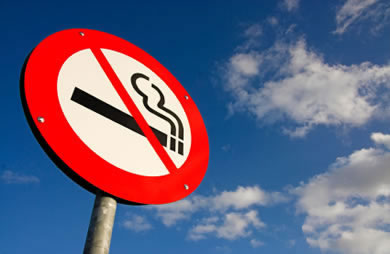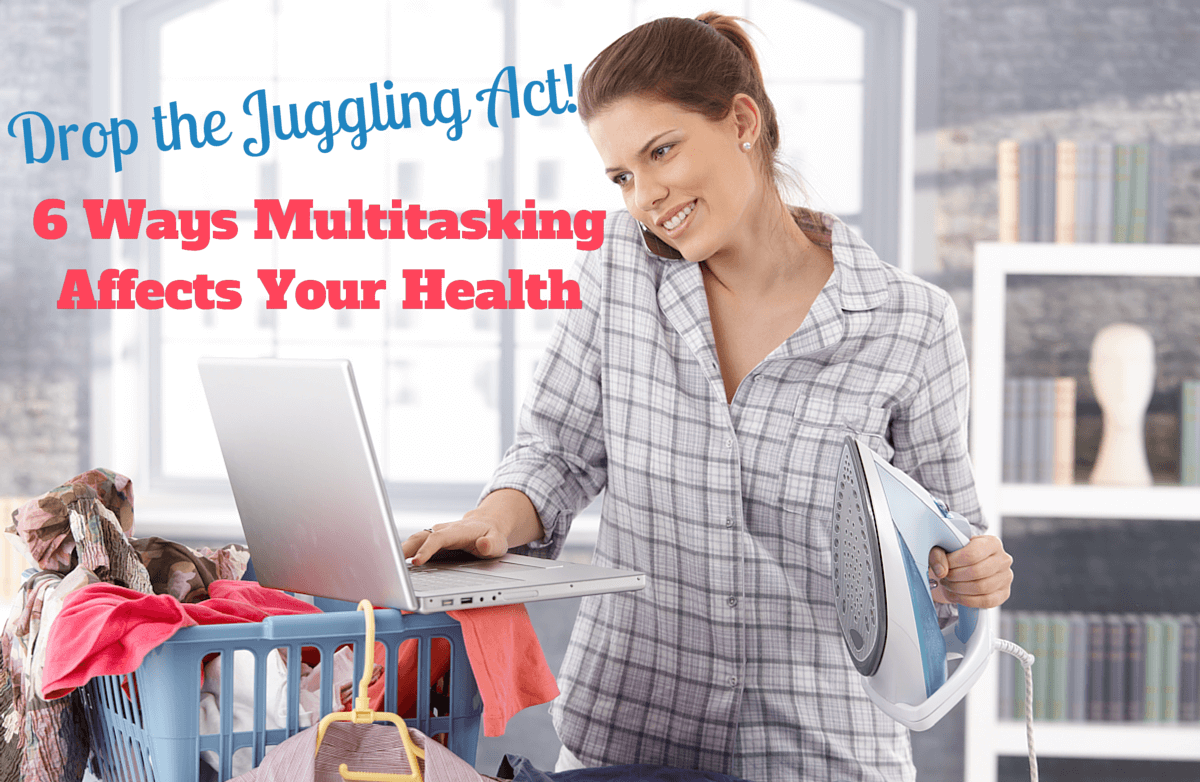How often do you collapse into bed after a long day and ponder, "What did I even accomplish today?" You know you've been busy; you barely had time for a bathroom break between answering emails, dashing between meetings and racing to be on time for this carpool or that baseball game. You've been working hard, your brain is fried and it feels as if you've been running on a treadmill all day. And yet, you can't seem to put your finger on what it is you got done.
If too many of your days end with these stressful, overwhelming, exhausting and, frankly, just not much fun feelings, it's time to do something about it. At some point, you have to realize that you're not living, but rather just existing.
Now, that's not to imply that you don't have moments of fun and joy, that there aren't vacations to look forward to, nights out with friends or the occasional escape into a wonderful book or movie. However, the reality is the majority of our waking hours are often spent working and taking care of our responsibilities. If those hours are lacking energy, enthusiasm, excitement and engagement, then it's time to reevaluate how it's affecting your life.
Today's world is complicated, hectic and challenging. Despite the fact that technology is supposed to make things easier, it's done the exact opposite for far too many people. Being accessible at all hours of the day and night have blurred the lines between work and home, and information overload makes us feel like there is constantly more to get done. To-do lists are overloaded, and it is just not humanly possible to take care of it all.
If you are aching for more energy, less stress, more fun and the desire to be feel more accomplished at the end of the day, your daily habits might be in need of a complete overhaul.
Think of it not as a time management strategy, but rather energy management, which is the key to extraordinary performance and an extraordinary life. What and when we eat, our sleep patterns, how much we move or exercise, our work habits and mental attitude all play a part in energy and performance—and we have the power to confront and make small adjustments to change every part.
With these 52 tips—all of which can be easily implemented into your day, some of which you might already be doing—you can proactively take tiny steps that will quickly amount to a huge difference in the way you feel. You deserve to wake in the morning feeling energized and excited for the day ahead. You deserve to let your head hit the pillow every evening feeling accomplished, calm and satisfied. To start, adopt one habit each week of the year, and by next year, you'll find yourself enjoying a more healthy and productive workweek.
Nutrition
1. Eat breakfast within one hour of awakening every day.
2. Never go more than four hours maximum without a small meal or snack. Eat often and eat light.
3. Keep healthy, non-perishable snacks in your office drawer, bag, briefcase and car.
4. Include a combination of complex carbohydrates (whole grains, vegetables, fruits), lean protein (meat, poultry, fish, beans, tofu) and a small amount of healthy fat (olive oil, nuts, avocado) at every meal and snack.
5. Keep a water bottle nearby in the office, your car and at home, and sip frequently.
6. Avoid snacks or drinks with high sugar content. The short lift you get after immediately consuming isn't worth the crash that comes a little later.
Exercise and Movement
7. Commit to a weekly exercise program that includes cardiovascular activities (walking, running, biking, swimming, etc.) with a minimum of two days of strength training.
8. Never sit at your desk for more than 90 to 120 minutes without taking a movement break. Even just walking to the breakroom and back, or around the office building will do wonders for your motivation and stress levels.
9. When you need to use the restroom, visit one on a different floor to get in a few extra steps.
10. Walk around or stand while talking on the phone.
11. Use movement rather than technology when possible. Consider walking to the other offices in your building to exchange information, rather than relying on phone calls, email or texting.
12. Take a five-minute stretch break after long periods of sitting at your desk or driving in your car.
13. Weather permitting, take a few five-minute outdoor breaks away from your desk. The fresh air will help refocus and revitalize you.
Rest, Relaxation and Sleep
14. Commit to no less than six hours, with a goal of eight hours, of sleep every night.
15. Shut off all technology at least one hour before bedtime. That means pressing the power button on computers, the television, cell phones, Kindles, iPads and gaming devices.
16. Create a relaxing bedtime ritual that you find calming and enjoyable.
17. Keep a pad and pen by your bedside. When you are being kept awake by nagging thoughts of all the things you forgot to do that day, or what must get done the next day, write them down. Knowing they're waiting for you could help relax your mind for the time being.
18. If late-afternoon exhaustion is keeping you from functioning at your peak, try taking a 20-minute power nap or add lean protein to your lunch, which will give you a steady stream of energy until closing time.
Stress Management
19. When you feel yourself tensing up or reacting emotionally to a situation, take a few deep, long breaths to calm yourself down.
20. Take some time to think about and identify the source of your stress. Then, fix what you can and accept those triggers that you have no control over.
21. Stop multitasking when working on important projects. Stick to one thing until completion and not only will you do your best work, but you'll also reach the finish line in less time.
22. Learn and use the skills of time management and practice them until they feel effortless and automatic.
23. Hire a professional organizer if clutter and managing your time is the cause of your stress.
24. Build in time to practice stress management techniques on a weekly basis. Try meditation, yoga, journaling, listening to music you love, massage therapy or spending time in nature to see what works best for you.
25. Commit to a personal "check out" time every day. Do whatever you love to do that has a calming and refreshing effect.
Daily Work Habits
26. Consider investing in or requesting an ergonomically correct work chair.
27. Sit tall, with both feet firmly on the ground rather than crossed. Be conscious of your posture and do your best not to slouch.
28. Purchase a good hands-free headset or speakerphone if you spend a lot of your time on the phone.
29. If you primarily use a laptop, purchase a stand so that you are eye level with the monitor.
30. Set the alarm on your phone or computer to remind you to take lunch and snack breaks, plus a movement break every 90 to 120 minutes.
31. Commit to a daily lunch break, even if it's only 15 minutes.
32. Take a walk outside after lunch or in the late afternoon, if possible.
33. Keep your desk free of unnecessary clutter. Assign a daily time dedicated to a quick cleaning.
34. Check and respond to emails on a schedule, rather than reacting to them all day.
35. Use technology to your advantage, not your detriment. When working, let voicemail pick up your messages and silence the "new mail" alert on your computer.
36. When in need of quiet concentration, put a "Please Do Not Disturb Sign" on your office door.
Planning and Scheduling
37. Set a consistent, specific time every week for planning your activities, both professional and personal. Schedule the time into your calendar to be sure you do them.
38. Schedule your self-care time—including exercise, meals, breaks—first, and treat it as you would a business appointment.
39. Review your activities daily and prioritize your to-do list.
40. Tackle your most overwhelming tasks first.
41. Stop writing down big projects on your to-do list. These are projects, not tasks, meaning you'll likely be discouraged if you don't complete them by a set deadline, no matter how much work might be involved. Break them up into the individual steps and put those on your daily list, instead.
42. Don't waste time crossing all the easy, fast and insignificant things off your list until the important tasks are handled.
43. Ask for help when you find yourself procrastinating because you need more information or don't know how to complete a task.
44. Eliminate or reduce the things that are wasting your time.
45. Delegate the things you are not good at or hate doing.
46. Take care to avoid multitasking by separating yourself from your cell phone or other distractions when you're tackling a new task.
Creating Boundaries Between Work and Home Life
47. Make firm decisions around when you are working and when you are not, and stick to that decision. The more often you make exceptions, the more blurred that important line will get.
48. Create a ritual that symbolically separates work and home life. When you get home from the office, change into different clothing, take the dog for a walk, have a cup of tea or read the paper. The activity is not important, as long as it is a signal to you that the work day is over and leisure time has begun.
49. If you must work in the evenings or on weekends, set a specific time period to do so and let your family know when you will be available again.
50. Do not handle household and family responsibilities while working, and don't work while with family and friends.
51. Do not take personal calls, texts or emails while at work. Conversely, do not take business calls, texts or emails when attending to your personal life. The distinction will make everyone involved happier.
52. Stay fully engaged with whatever you are doing. When you are working, work hard. And when you are playing, play full on and have fun!
A work-life balance is arguably more important to recognize and create than ever before. With these small, manageable steps, you'll quickly find yourself happier and more productive in all your tasks, big or small.
52 Ways to Achieve a Healthier, Productive Workweek and Life
Related Articles
-
 The Reality Behind Going the Bariatric Surgery Route
The Reality Behind Going the Bariatric Surgery Route
-
 Which Health Expert Is Right for You?
Which Health Expert Is Right for You?
-
 Stop Smoking and Gain Weight? Not Necessarily!
Stop Smoking and Gain Weight? Not Necessarily!
-
 The Cost of Multitasking: 6 Health Risks You Should Know
The Cost of Multitasking: 6 Health Risks You Should Know
-
 Are You an Active Couch Potato?
Are You an Active Couch Potato?
-
 Should You Reevaluate How You Spend Your Time?
Should You Reevaluate How You Spend Your Time?
-
 10 Ways to Stay Healthy When Working from Home
10 Ways to Stay Healthy When Working from Home
-
 The Worst Advice Health Coaches Often Hear
The Worst Advice Health Coaches Often Hear
-
 7 Good Reasons to Smile
7 Good Reasons to Smile
-
The One Time We'll Tell You to Be a Quitter



